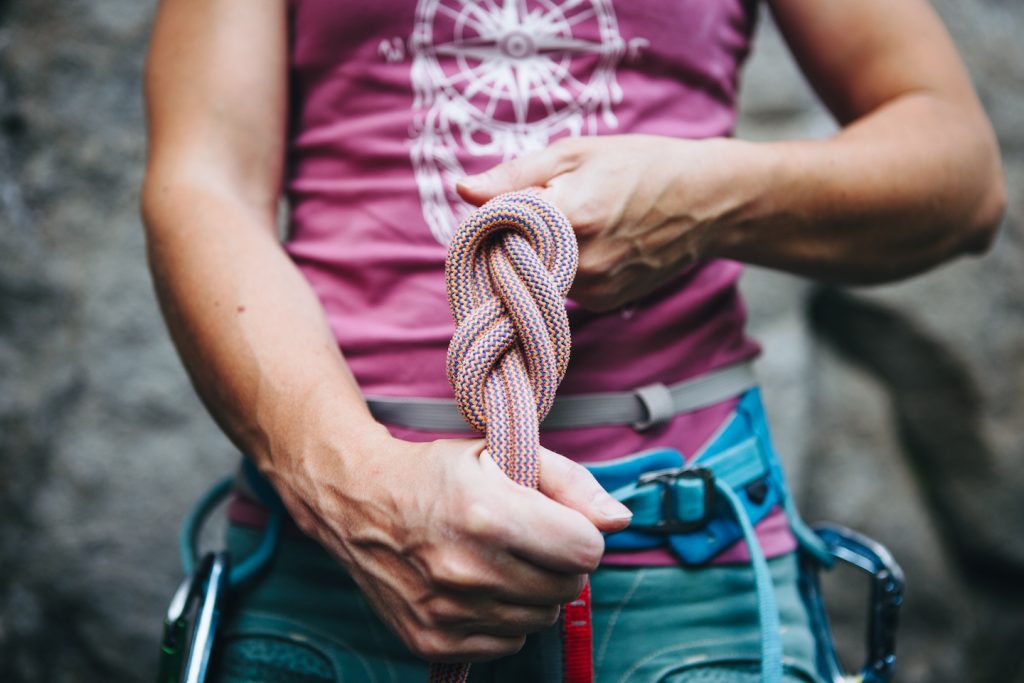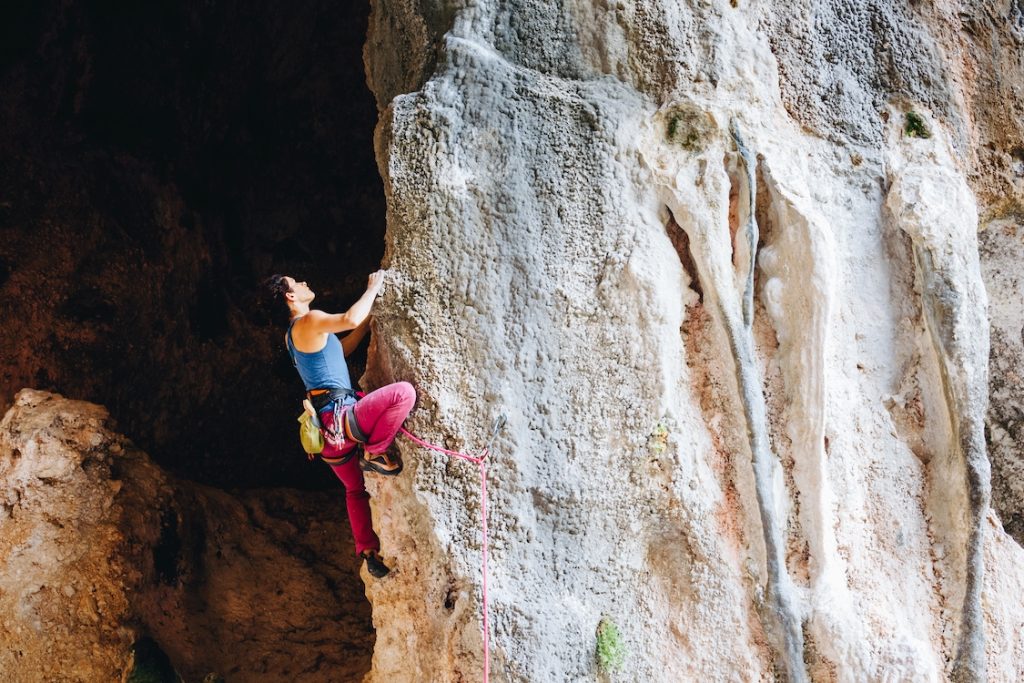
There’s a in inherent danger, but most people can manage it with safety precautions.
- With rock climbing, you need a rope and safety checks.
- Pursuing weight loss, you need your values and safety checks.
I know that there’s an entire diet world that’s telling you that dieting is constantly necessary. That all of your self-worth depends on your weight. That dieting is a moral imperative.
That’s gross.
On the other end of the spectrum, there’s an anti-diet world that’s telling you that intentional weight loss is never safe and is never a viable goal.
I think that’s a little rigid.
You can pursue intentional weight loss, if you check the kinds of decisions you’re making against your values. Here are some examples:
If you plate balanced meals
and stop when full —
That probably matchesa weight loss goal ✅
and
matches who you want to be about eating most of the time. ✅
If you skip brunch with your friends —
That probably matches a weight loss goal ✅
but not
who you want to be about eating most of the time. ❌
If you check in about hunger versus stress when snacking —
That probably matches a weight loss goal ✅
and
matches who you want to be about eating most of the time. ✅
If you decide to never eat dessert again —
That probably matchesa weight loss goal ✅
but not
who you want to be about eating for the rest of your life. ❌

Your values are the safety check.
Many people can pursue weight loss goals in a healthy and safe way if they use their values for a “safety check.”
You wouldn’t go rock climbing without a rope.* Don’t pursue intentional weight loss without clarifying and repeatedly checking in with your values.
*Unless you’re Alex Honnold!
I don’t talk about weight loss as much anymore, but most clients who hire me do in fact want to work on weight loss. That’s totally a thing we can do.
It’s fine as a goal, as long as we do a lot of exploration of a person’s values, and we use their values as a safety check. This post was inspired by Gabrielle Fundaro, PhD, who posed a year or two ago about “weight loss is a contact sport,” and managing it with protective factors like positive body image, critical processing of media images, social support, and health goals. I thought it was the most amazing analogy.
I try to approach it with clients from a values perspective, and I used to rock climb back in the day. I kept thinking about how before every time we’d go up the rock, we’d do a safety check — check the belay device, the figure 8 knot, that the belay carabiner is clipped and locked, and so on. The belayer would say “On belay” to let you know when they’re ready. You’d do the same safety checks before every time you go up the rock, climber and belayer.
I started thinking about that like how coaching conversations go, that we repeatedly do safety checks with intentional weight loss:
Some “safety check” questions:
- What are your values?
- Does this choice match your values?
- Are you thinking about *all* of the different things that matter to you in your life, or just this one goal?”
Anyway, everyone has different levels of risk. Rock climbing isn’t for everyone. There are always chances that it won’t go well. At the same time, we can mitigate the risk really considerably by having a rope and going through all of the safety checks. Similarly, intentional weight loss isn’t for everyone. There’s absolutely a population of people who it isn’t good for.
That being said, it can totally be a pursuit for a lot of people, if they’re smart about it, and “safety check” their choices against their values.
—Josh Hillis
Leave a Reply